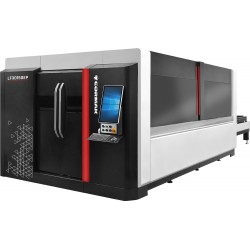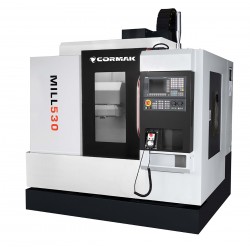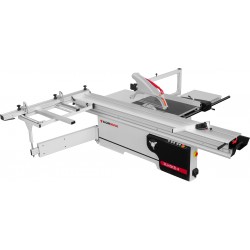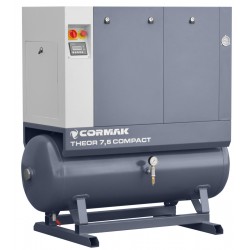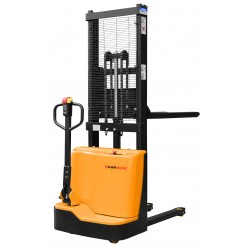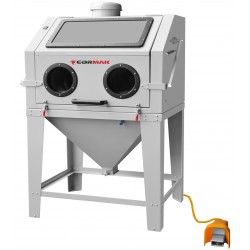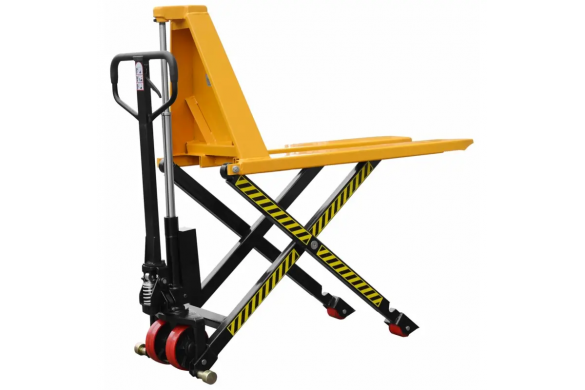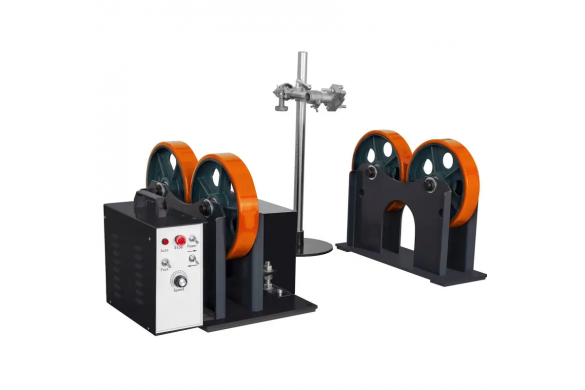CNC machining – what is it?
The Use of CNC Machines Has Been Groundbreaking for Industrial Production. What Is CNC Machining?
CNC machining primarily allows the production of complex, precise parts from various materials, making it highly valuable in modern industry. The method ensures high quality and uniformity of produced parts, essential in many industries such as automotive, aerospace, or medicine. Learn more about CNC machining!
What is CNC machining?
Machining is the process of removing excess material from a workpiece to give it a specific shape, dimensions, and surface properties. It is one of the fundamental manufacturing methods in the mechanical industry, applicable to metals, wood, plastics, and composites.
CNC (Computer Numerical Control) machining is an advanced industrial process in which cutting tools are controlled by computers. A computer program precisely guides the machine's movements, enabling complex cuts and shapes. The process uses various machines and cutting tools. There are several basic types of machining:
- Milling – A process where material is removed using a rotating tool called a mill. It is a versatile method that allows for complex shapes and high precision.
- Cutting – Involves separating a portion of material from the whole, usually with saws or other cutting tools.
- Turning – A process where the material is rotated around its axis while a cutting tool removes the excess, shaping the object as desired.
- Grinding – Used to achieve very smooth and precise surfaces by abrading the material with a grinding tool.
- Drilling – Creating holes in the material using a specialized drill bit.
What does CNC machining offer?
Innovative technology in the manufacturing industry, significantly increasing production capabilities with precision, efficiency, and adaptability – that’s what CNC machining is all about. How has it revolutionized the production industry?
- Precision and repeatability: CNC allows for highly accurate material processing with excellent repeatability. CNC programs can be used repeatedly, ensuring identical parts.
- Complex shapes and patterns: CNC machining enables the creation of intricate shapes and patterns that would be difficult or impossible to do manually.
- Automation: CNC processes are largely automated, reducing the need for constant human oversight, increasing production efficiency, and lowering the risk of errors.
- CAD/CAM software: Computer-Aided Design (CAD) and Computer-Aided Manufacturing (CAM) software are used to design and program CNC machines, facilitating the creation of complex designs and their implementation.
- Versatility: CNC machines can handle various machining processes, including milling, turning, drilling, threading, and grinding.
CNC machining in mass production
CNC plays a vital role in mass production, offering many benefits over traditional methods. It ensures precision and repeatability, which are crucial in mass production. Computer programming guarantees that every part is identical, something unattainable with manual machining.
These devices can work continuously and quickly, speeding up production. Automation enables machines to run even after working hours. Additionally, CNC machines can be reprogrammed quickly and easily to produce different parts, allowing flexible adaptation to changing production needs without the need for new equipment.
Precise cutting and minimized errors reduce material waste, benefiting both economically and environmentally.
Where is CNC machining used?
CNC machining is utilized across numerous industries, including:
- Automotive industry – Used in producing car parts, such as engines and transmissions, where precision and repeatability are vital.
- Aerospace and space industry – To manufacture complex aerospace and space components, which must meet stringent safety and precision standards.
- Machinery and equipment production – For producing advanced machine and equipment components across various industries.
- Medical industry – For creating precise medical instruments, implants, and diagnostic devices.
- Electronics – In producing electronic components and enclosures, requiring precision on a microscopic scale.
- Energy sector – For producing turbine, generator, and other key energy components.
- Woodworking and carpentry – For precise cutting and shaping wood in furniture, decoration, and construction elements.
- Construction industry – Producing precise structural components, molds, and tools.
- Educational and research sectors – Used in universities and research centers for teaching and developing new production techniques (including prototyping).
What is CNC machining? Summary
CNC machining is an indispensable part of modern industry, offering unmatched precision, versatility, and efficiency. This technology is used in various industries, from automotive to medicine, allowing complex projects to be realized with high quality and precision.
As an experienced manufacturer of industrial machines, we offer high-quality machines for metal and wood processing, including grinders, planers, saws, CNC milling machines, lathes, and laser cutters. At CORMAK, we understand the importance of reliability and optimization in production, which is why our machines are designed to meet the highest industrial standards. Our clients can count not only on fast order fulfillment but also on the support of our experienced consultants and professional machine servicing. We invite you to explore our full range and choose top-quality products!

